Gardening Lecture Topics
Attracting Beneficial Bugs to Your Garden 
Understanding the cycle of predator and prey is an integral part of growing organically. Using information assembled for her book, Attracting Beneficial Bugs to Your Garden: A Natural Approach to Pest Control, Jessica shines some light on the methods needed to attract beneficial insects, such as ladybugs, lacewings, and parasitic wasps, to the garden – and keep them there. She presents ground-breaking research regarding the intricate connection between plants and insects, and explains the need for maintaining the garden’s natural balance. Jessica describes over a dozen species of beneficial insects found across North America and accompanies the lecture with beautiful images of the predators themselves and their favorite host plants. You’ll never look at bugs the same way again!
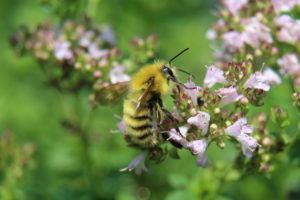 Supporting Native Bees in the Home Garden
Supporting Native Bees in the Home Garden
Many of North America’s 4000-plus species of native bees are in trouble. Facing population declines due to habitat loss, pesticide exposure, and pathogens, these important insects need our help. Seven bee species are now on the Endangered Species List, with more likely to be added soon. In this lecture, Jessica introduces you to some of her favorite native bee species and hands you all the tools you need to support them in your own garden. With plenty of tips for planting the right nectar foraging plants and preserving native bee nesting habitat, this lecture is overflowing with insightful information on protecting these valuable creatures.
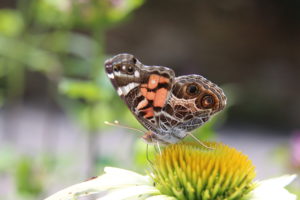 Butterfly Gardening: It’s not just about flowers
Butterfly Gardening: It’s not just about flowers
If you want to attract and support butterflies in your garden, you need to think about way more than providing nectar sources. Turning your backyard into a haven for butterflies involves more than having a bunch of pretty flowers. You need to have both very specific host plants for the caterpillars and the keen observational skills required to identify them from egg to chrysalis. Since the vast majority of North America’s native butterflies overwinter in our yards and gardens (only the monarch flies south for the winter), it’s critical that we also provide them with the right kind of overwintering habitat. In this talk, Jessica covers all these topics and more, and introduces you to several of our continent’s most beautiful creatures via gorgeous images of all life stages.
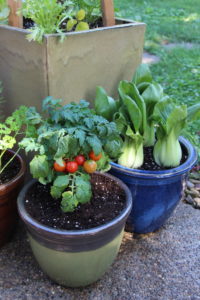 Container Savvy
Container Savvy
Grow beautiful flowers, vegetables, and fruits on your balcony or patio. Learn what kinds of containers to choose, what to fill them with, and how to care for your container garden throughout the growing season. Based on Jessica’s book, Container Gardening Complete, this talk features plenty of inspiring ideas for container gardening projects, including lots of ways to repurpose household items to create unique containers and trellises. Favorite container-worthy veggie varieties are also highlighted, as well as tips for reducing maintenance and watering chores.
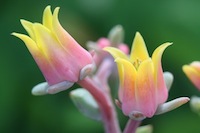 The Guiding Principals of Organic Gardening
The Guiding Principals of Organic Gardening
The elimination of chemical pesticides is just one of many defining traits of an organic gardener. In this lecture, Jessica outlines exactly what a gardener needs to do to call themselves organic. From using natural fertilizers to attracting beneficial insects and understanding the delicate balance of life in the garden, this entertaining lecture uses science, and stories, to share with participants the essence of growing organically.
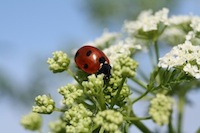 Grow Organic – Making the Transition
Grow Organic – Making the Transition
More and more research is pointing to the direct benefit of growing organically. Jessica shares with guests a new understanding of the ease and convenience of organic practices. Sharing information about lessons learned in her own garden, this lecture de-mystifies organics and guides gardeners through the transition process step-by-step. This talk is meant to present attendees with a basic understanding of organic practices and offers plenty of tips for ensuring a successful garden.
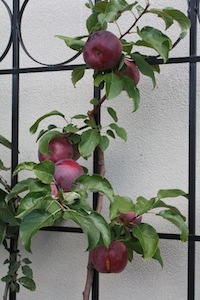 Six Steps to a Pest Free Garden
Six Steps to a Pest Free Garden
In this lecture Jessica outlines an easy to follow six step pest control plan. Using techniques based on both Integrated Pest Management and natural-care gardening, this plan enables gardeners to manage any pest troubles safely, effectively, and organically. Information about biological, botanical, physical, and mechanical controls is offered; and there’s plenty of practical and useful advice for boosting a plant’s natural immune system.
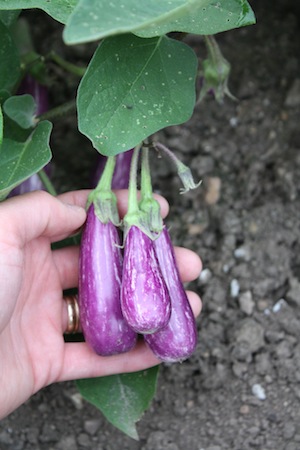 Vegetable Gardening with Flair
Vegetable Gardening with Flair
Vegetable gardens don’t have to be boring. Creating a patchwork of colorful veggies makes the garden as ornamental as it is productive, lures in pollinators and beneficial insects, and keeps the neighbors gawking. Learn from Jessica, a former organic market grower, all the tips and techniques you’ll need to have a high-yielding, gorgeous vegetable garden without a lot of fuss. Favorite varieties for organic growing as well as topics from amending your soil to pest control are discussed. You’ll be taught about the 4-cycle crop rotation schedule and some simple ways to bring more color and flavor to the garden.
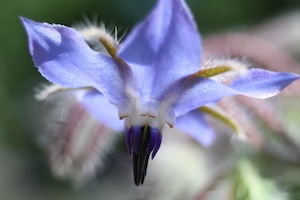 Neglected Annuals
Neglected Annuals
We’re so used to hybrid geraniums and wax begonias that we’ve forgotten the roots of modern annuals! Old-fashioned and often self-sowing annuals should be some of the shining stars of our gardens – but instead, they’re often found only in the pages of specialty catalogs. Learn about some of the loveliest, easiest plants around and how to bring them into your garden. From snow-on-the-mountain to the corn marigold, slides will illustrate their proper and well-deserved place in the garden.
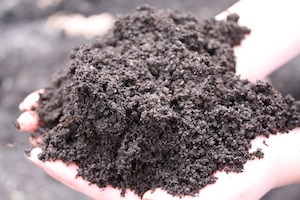 Get the Digs on Dirt
Get the Digs on Dirt
This lecture discusses the importance of soil to garden performance. Learn about soil composition and how to use it to your advantage. Easy composting methods are discussed along with other organic soil amendments.
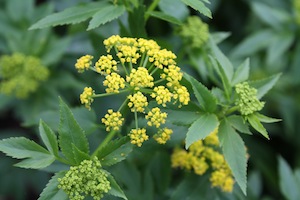 Shade Gardens and Plants
Shade Gardens and Plants
Learn through slides and lecture how to liven up a shady corner of the garden. Favorite shade perennials and their habits are discussed.





